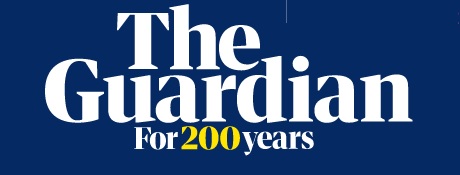Climate and heritage experts call on British Museum to end BP sponsorship
A group of climate scientists, archaeologists and those familiar with the museum industry have written to the British Museum’s board of trustees to urge them to sever a sponsorship deal with BP, arguing that it goes against the museum’s own policies and that a renewal would damage its reputation.
The submission, put together by the group Culture Unstained, is part of an escalating campaign against the oil firm’s sponsorship of the museum, which is expected to make a decision about renewing the deal imminently.
It is signed by Sir Robert Watson, the former chair of the Intergovernmental Panel on Climate Change and the Intergovernmental Science-Policy Platform on Biodiversity and Ecosystem Services; Naomi Oreskes, a professor of the history of science at Harvard University; and Rodney Harrison, a professor of heritage studies at University College London (UCL).
Other signatories include Willow Coningham, from the UK Student Climate Network; Mark Serwotka, the general secretary of the Public and Commercial Services union, which represents many British Museum staff; Paul Ekins, a professor of resources and environmental policy at UCL and the former co-director of the UK Energy Research Centre; Jonathon Porritt, the founder director of Forum for the Future; Hilary Jennings, the director of the Happy Museum Project; and Dr Chris Garrard, the co-director of Culture Unstained.
They highlight the many ways in which BP’s record regarding the climate crisis “clearly falls short of the scale and ambition of corporate responses that are now required”.
They call on the museum’s board of trustees to “fulfil their legal duties” by ensuring a due diligence process is undertaken before a decision is made about any new deal with the company.
Trustees, they say, have “the capacity to reject a proposed partnership with BP because it would not conflict with their fiduciary responsibilities”. They allege that a failure to do so “could leave the museum exposed to regulatory intervention”.
The submission also calls for George Osborne, the museum chair, and Philipp Hildebrand, a board member, to recuse themselves from discussions on BP sponsorship “due to their conflict of interest” – BP is a client of Osborne’s banking firm Robey Warshaw, while Hildebrand is the vice-chair of BlackRock, one of BP’s largest shareholders.
“The majority of UK cultural organisations, including the National Portrait Gallery, Royal Shakespeare Company, Tate, Edinburgh international festival and Scottish Ballet, have now ended their sponsorship agreements with BP, while the National Theatre, National Gallery, Southbank Centre and the British Film Institute have all ended their partnerships with Shell,” the submission continues.
“The British Museum would be isolated both in its continued acceptance of sponsorship from a fossil-fuel-producing company and its lack of a clear ethical stance on this issue.”
BP has been a sponsor of the British Museum for years and is a supporter of its Stonehenge exhibition. The current five-year contract was signed in May 2016 and extended for a year due to Covid.
Harrison said the British Museum’s relationship with BP was “clearly out of step” with the rest of the cultural sector.
He added: “BP’s well-publicised involvement in fossil fuel lobbying and ongoing oil and gas exploration, which threatens the world’s attempts to meet agreed global heating targets … clearly makes it an inappropriate partner for a museum which purports to act for the preservation of the world’s cultures.
“At a time when national and international codes of ethics for the sector urge museums to ensure they work in the public interest, uphold the highest level of institutional integrity and maintain transparent relationships with partner organisations, the British Museum’s conduct raises questions of international concern which the trustees must address.”
A recent freedom of information request made by Culture Unstained revealed how leading figures from large corporations, including BP, are members of an “influential but almost entirely unaccountable” group advising the British Museum. The museum has said claims it is inappropriately influenced by any donations or sponsorship “are simply incorrect”.
The museum’s deal with BP has been the subject of numerous protests over the years, as part of a high-profile campaign against big oil’s involvement in the arts. Earlier this year, more than 300 archaeologists and historians wrote to the museum’s trustees calling on them to cut ties with the company, while activists presented fake “Stonehenge drilling plans” to visitors. In 2020 the museum was occupied for three days during its BP-sponsored Troy exhibition.
The relationship between the British Museum and BP has also drawn condemnation from the museum’s staff and led in part to the resignation of one of its trustees, the novelist Ahdaf Soueif. Actors including Emma Thompson, Mark Ruffalo and Mark Rylance called on the museum’s director to drop BP as a commercial sponsor.
Last month, the British Museum became the latest cultural organisation to remove the Sackler family name from its galleries and rooms. In recent years, the name has become toxic, with some branches of the family accused of making a profit from the US opioids crisis.
A spokesperson for the museum said: “The British Museum receives funding from BP, a longstanding corporate partner, to support the museum’s mission and provide public benefit for a global audience through its support of our temporary exhibition programme. Without external support much programming and other major projects would not happen. The British Museum is grateful to all those who support its work in times of reduced funding.”
The spokesperson said that the director and trustees “think carefully about the nature and quality of sponsorship before accepting”, adding: “The museum is run solely by its trustees and staff as set out in the British Museum Act 1963. All decisions are made by the trustees and staff through our governance structure and in the best interests of the museum as a charity.”
Nadia Khomami Arts and culture correspondent - Guardian
Photograph: Simon Dawson/Reuters





